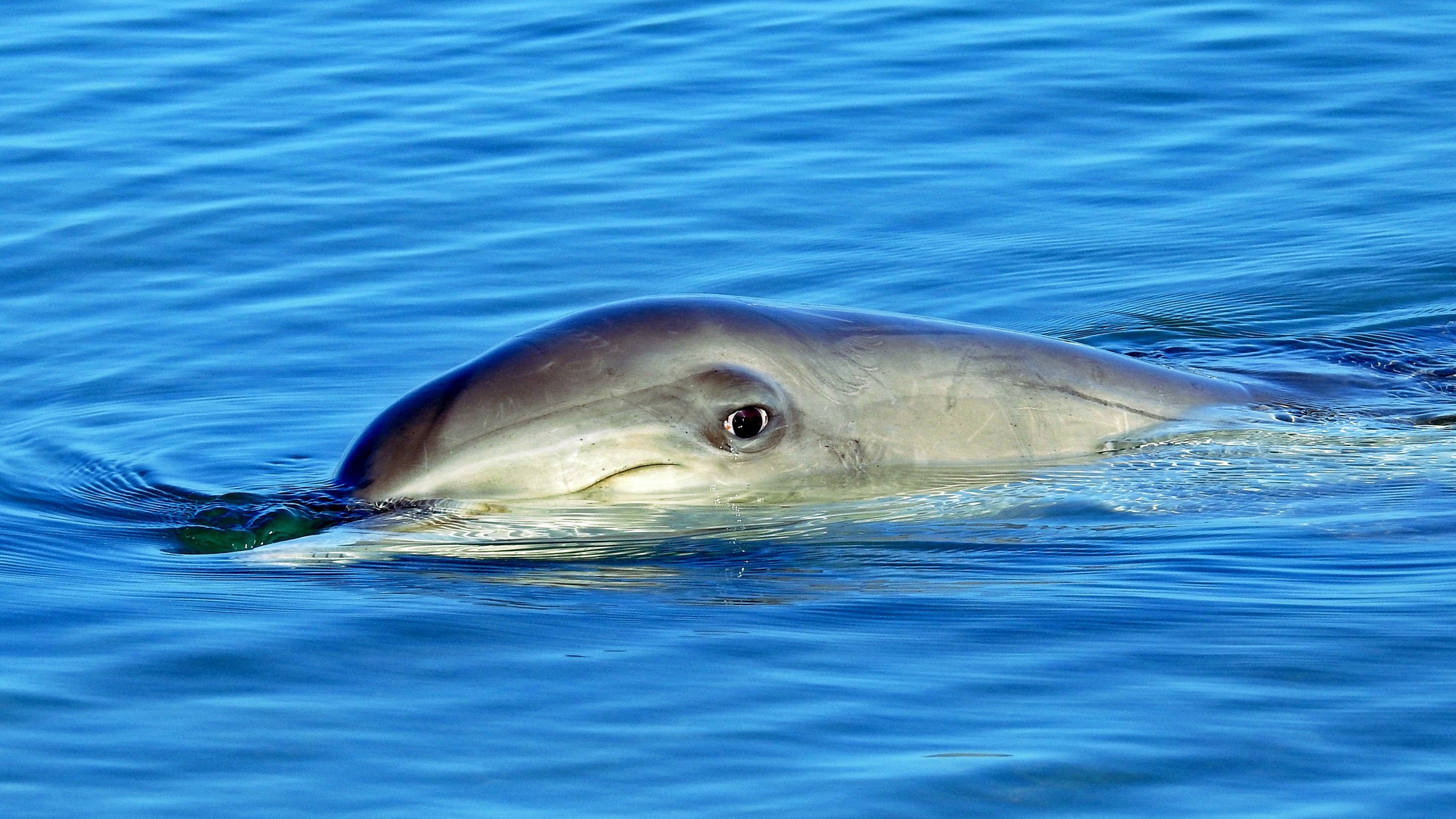Sexually frustrated dolphin behind spate of attacks on humans off Japan
Researchers believe one male Indo-Pacific bottlenose dolphin is responsible for annual attacks on beachgoers in the Fukui prefecture of Japan, and he's doing it because he's lonely.

A dolphin attacking swimmers in Japan is probably lonely and sexually frustrated, experts say.
At least 18 people have been injured in dolphin attacks in Fukui prefecture this year in what is becoming an annual occurrence in the region. Most of the injuries are minor bites, but some beachgoers have suffered broken bones since the attacks started in 2022.
Researchers believe a lone male Indo-Pacific bottlenose dolphin (Tursiops aduncus) is likely responsible for the attacks based on photographs and video footage, Nature reported.
"We've seen that this dolphin randomly shows up at a beach, bites if there are people around, wanders off and repeats," Tadamichi Morisaka, a professor in the Cetacean Research Center at Mie University in Japan, told Nature. "To me, he's seeking some kind of interaction with people."
Dolphins engage in gentle biting with each other as part of their normal social behavior, so the dolphin might believe he's got a friendly relationship with the humans, Morisaka said.
"If he really wanted to attack, he could have come tackling at full force and chomped down. But he's keeping the biting gentle for dolphin standards, so it's probably a friendly gesture rather than a full-on attempt to attack," he said.
Related: Dolphins are 'literally acting like jerks' by beating up baby manatees
Get the world’s most fascinating discoveries delivered straight to your inbox.
It's unclear why the dolphin is on his own. Bottlenose dolphins usually live in pods, with males forming long-term partnerships with other males. Paired males bite, chase, rub and engage in sexual behaviors such as pressing their penises against one another as part of these relationships, and Morisaka believes the dolphin in Fukui is trying to treat humans like a male pair mate.
Ryoichi Matsubara, the director of Echizen Matsushima Aquarium in Fukui, told The New York Times that the dolphin was observed trying to press his genitals against people in 2022 and 2023, and that he might be acting out mating behavior — but also biting beachgoers if they approached or tried to touch him.
Other researchers have also suggested that the attacks could partly be the result of the dolphin's desire to mate. Simon Allen, a principal investigator at the Shark Bay Dolphin Research project in Western Australia, told BBC News that dolphins can express their sociality in physical ways.
"Just as in humans and other social animals, hormonal fluctuations, sexual frustration or the desire to dominate might drive the dolphin to injuring the people it interacts with," Allen said. "Since they are such powerful animals, this can lead to serious injury in humans."
Fukui prefecture authorities are discouraging people from interacting with the dolphin. They've put up signs and fliers warning beachgoers, introduced lifeguard patrols and are limiting swimming hours on certain beaches, the Times reported. Authorities have also installed underwater acoustic devices emitting high-frequency noises to deter dolphins.
However, Morisaka is concerned the dolphin could get used to the acoustic devices and instead wants to develop an echolocation detection system to alert beachgoers that a dolphin is nearby. He believes that with people out of the water, the dolphin won't find anything interesting at the beaches and will eventually leave them alone.
If the human-dolphin interactions continue, they could become more dangerous. Morisaka said dolphins can begin attempting to assert their dominance over humans, engaging in aggressive behaviors such as tackling or mounting.
"We saw a bit of this last summer, so I was very concerned," Morisaka said. "They are about 2.5 metres [8.2 feet] long and weigh around 200 kilograms [440 pounds], so if they came charging at 20-30 kilometres per hour [12 to 19 mph], it'd be like getting into a traffic accident."

Patrick Pester is the trending news writer at Live Science. His work has appeared on other science websites, such as BBC Science Focus and Scientific American. Patrick retrained as a journalist after spending his early career working in zoos and wildlife conservation. He was awarded the Master's Excellence Scholarship to study at Cardiff University where he completed a master's degree in international journalism. He also has a second master's degree in biodiversity, evolution and conservation in action from Middlesex University London. When he isn't writing news, Patrick investigates the sale of human remains.


